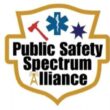Bigger rebanding problems overshadow benefits of SED program
LAS VEGAS–Last week, the 800 MHz Transition Administrator (TA) announced the creation of a Subscriber Equipment Deployment (SED) program that will let public-safety licensees begin replacing and upgrading subscriber units before completing all rebanding negotiations with Sprint Nextel.
On the surface, the SED program looks like a good idea, allowing at least some work to get done while the army of lawyers representing licensees, Sprint Nextel and the TA continue their excruciatingly long negotiations and mediations in an effort to complete rebanding agreements. And, after watching last year's "fast track" program for planning funding fall well short of its goals, allowing licensees to participate even if they don't meet the targeted thresholds has to be considered a positive step.
But, like so many things associated with rebanding, it's taken some time to reach this point. Faced with the reality that it could take some licensees with large systems as long as two years to reband all their subscriber equipment, Motorola proposed a similar notion last summer. And the delay in implementing the program makes it much less attractive than it would have been several months ago, said Alan Tilles, who represents licensees as a partner in the law firm of Shulman Rogers Gandal Pordy & Ecker.
"We're already in negotiations for all of those anyway, so what good is it?" Tilles said. "The only value will be maybe to some Wave 3 and Wave 4 licensees — too little, too late."
Given that the vast majority of Wave 1 NPSPAC licensees do not have agreements with Sprint Nextel yet, one could argue that Tilles is understating the potential benefit of the SED program. But it can't be argued that an SED program established last fall would have been much more helpful.
Meanwhile, it appears obvious that the numerous problems associated with rebanding are beginning to wear on participants, perhaps dampening their enthusiasm for the latest TA program.
Officially, the deadline to complete rebanding is just 15 months away, but the growing sentiment is that a more realistic date is the middle of 2010 — and some believe that's a best-case scenario, especially with no tangible sign that treaties along the Canadian and Mexican borders are imminent.
More disconcerting than international negotiations have been those within our own borders. Mandatory mediation has become the norm for NPSPAC licensees, none of which have relocated to their new frequencies 21 months into this 36-month process.
Based on anecdotal evidence, there appears to be plenty of blame to go around — the FCC still has not ruled on several pending items, Sprint Nextel negotiators and TA mediators continue to be accused of nitpicking, vendors lack the resources to provide quotes and services in a timely manner, and some licensees aren't devoting as much attention to the process as needed.
But some of the most frustrating tales continue to be those surrounding lawyer-intensive efforts to resolve disputes. Gil Stock of Tusa Consulting Services told me of a recent conference call involving a mediator, a licensee representative, members of his consulting firm and lawyers for Sprint Nextel and the licensee — a group that probably billed about $1800 per hour, Stock estimates — that was convened to argue over a $100 dispute.
"Lots of money is being spent on pretty frivolous negotiating points," Stocks said.
Sprint Nextel and the TA are required to ensure that rebanding tasks are done at a minimal cost, but this doesn't seem to be the most economical way to achieve this goal, from a timing or financial perspective. Certainly it's not working according to Stocks, who said he believes Sprint ultimately will pay $7 billion to $8 billion to complete rebanding, based on what he has seen in negotiations.
Assessing the accuracy of Stock's estimate is difficult because the only numbers available to observers indicate that Sprint had spent about $800 million on reconfiguring the 800 MHz band, with less than 10% of that money going to licensees other than itself. What can be confirmed is that sources repeatedly have said NPSPAC rebanding is costing much more than anyone anticipated, with several expressing doubt that Sprint can complete rebanding for the $2.8 billion that it was duty-bound to pay under the FCC order.
If so, the notion that the U.S. Treasury would see any money from Sprint Nextel at the end of rebanding may be nothing more than a pipe dream. Meanwhile, Sprint Nextel shareholders should be watching closely to see if Stock's projections are remotely accurate.
E-mail me at [email protected].












